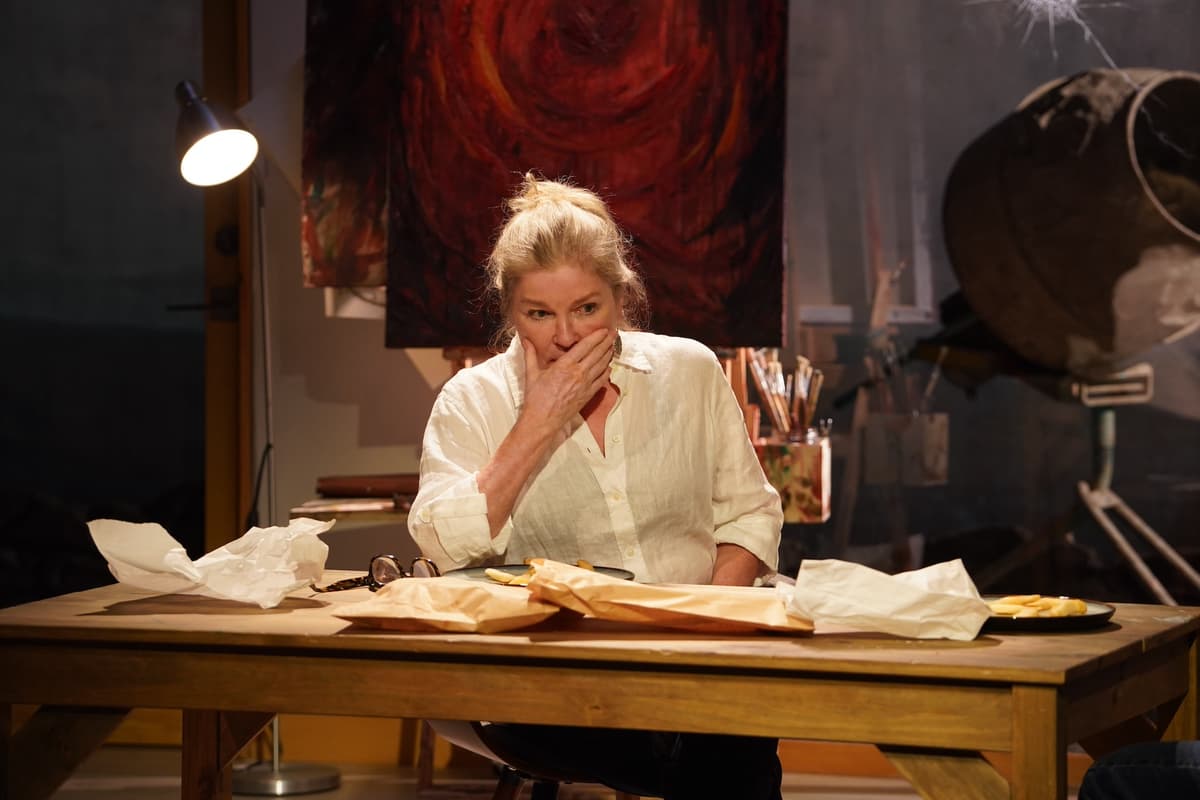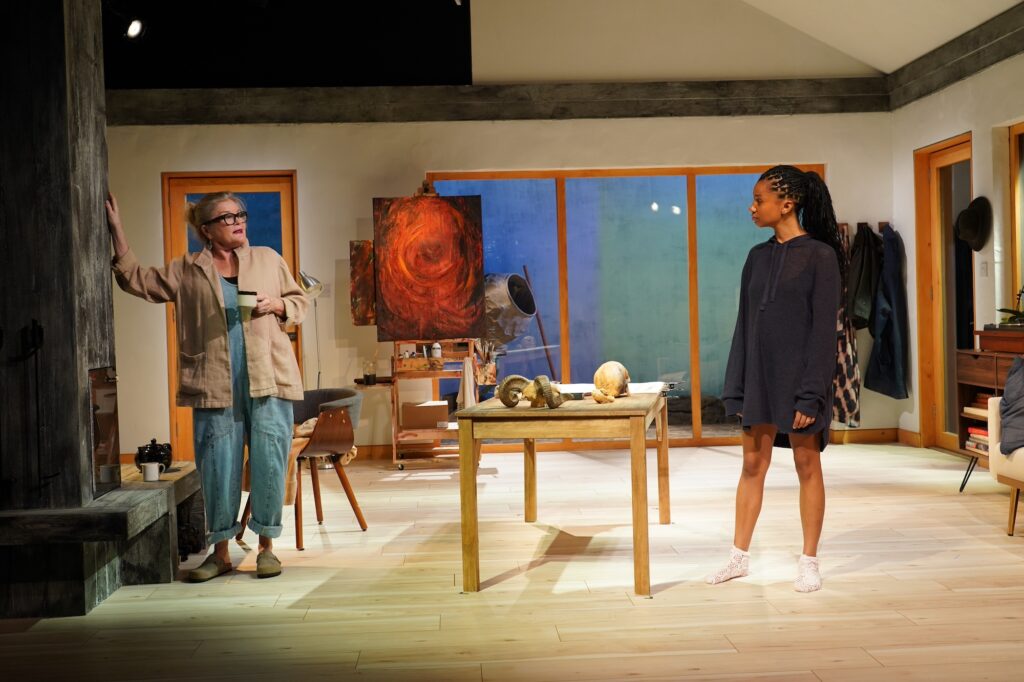Nancy Harris’s ‘The Beacon’ Launches Irish Repertory’s 36th Season
Over two acts, Harris and director Marc Atkinson Borrull weave a masterful web of suspense, building to a breathtaking conclusion that proves a bravura showcase for the show’s leading lady, Kate Mulgrew.

Irish Repertory Theatre marked its 35th anniversary last year with a tribute to the great Brian Friel that delivered some of the best shows in town. To launch its 36th season, the company has selected a work by a contemporary Irish playwright, Nancy Harris, and I suspect that Friel, were he still with us, would heartily approve of the choice.
“The Beacon,” first produced at Dublin five years ago, is set on an island off the coast of West Cork, where Ms. Harris spent time during her childhood as her father, also a writer, did research. It appears to be the kind of small community where many of Friel’s plays unfolded, where even the pettiest and most comical tensions can reflect larger social and historical dilemmas.
In this case, those tensions stem partly from West Cork’s current popularity as a tourist destination. We meet Beiv, a celebrated visual artist who has relocated to the island, the site of many previous summers with her well-off ex-husband and their son, from Dublin. The son, Colm, now in his 30s and a successful software engineer, has just arrived from San Francisco with a surprise: a young bride, a California native named Bonnie who is in awe of Beiv.
Her enthusiasm isn’t shared by Colm, who conveys a level of resentment toward his mother that will boil over into rage. There are dark secrets within this family, at least one of them involving the mysterious death of Colm’s father; and over two acts, Ms. Harris and director Marc Atkinson Borrull weave a masterful web of suspense, building to a breathtaking conclusion that proves a bravura showcase for the show’s leading lady.

That would be stage and screen veteran Kate Mulgrew, who drew attention in recent years for her hilarious portrait of a convict with ties to the Russian mob in the Netflix series “Orange is the New Black.” Beiv has many of her own droll moments, from the first scene, in which the overeager Bonnie (a charmingly pert Ayana Workman) determines that one of her host’s paintings, an abstract burst of orange shades, evokes childbirth, menstruation, abortion — “pretty much all of female suffering,” she resolves — but an “explosive orgasm” as well.
“It’s a blood orange,” Beiv states drily. Moments later, she will insist, “I’m not Ireland’s great feminist artist.” Beiv has led an unconventional life, however, having love affairs with men and women — it’s suggested that one of the latter essentially ended her marriage — but, despite her cherished independence, remaining devoted to Colm’s dad to an extent that isn’t fully revealed until the play’s shattering final scene.
Ms. Mulgrew charts her character’s arc exquisitely, expressing her regrets and disappointments — in Colm, in herself — and her resilience with an earthy but elegant power that never veers into overstatement. Zach Appelman gives a similarly robust, disciplined performance as Colm, who harbors his own personal demons: some of them linked to a longtime bond with one of the West Cork locals, a gentle but sturdy soul named Donal, whose decency and suffering are beautifully captured by Sean Bell.
Colm McNally’s scenic design and Liam Bellman-Sharpe’s sound underline the stormy developments that unfold in Beiv’s cottage, with ocean waves, visible right outside a glass wall, lapping and crashing as the characters collide. The sea figures prominently in “The Beacon,” as a source of both danger and strength — something one can make peace with but never fully conquer, like emotion.
Toward the end, Beiv recalls how proud she was when Colm overcame his fear of boats and went out sailing alone as a boy, “because for the first time, you were ruthless. The way an artist has to be ruthless—to cut off the rest of the world and dig in on what it is they want to say.” But if this stirring play has anything to say, it’s that none of us can ever cut off the world entirely, and particularly the people who give it meaning.

